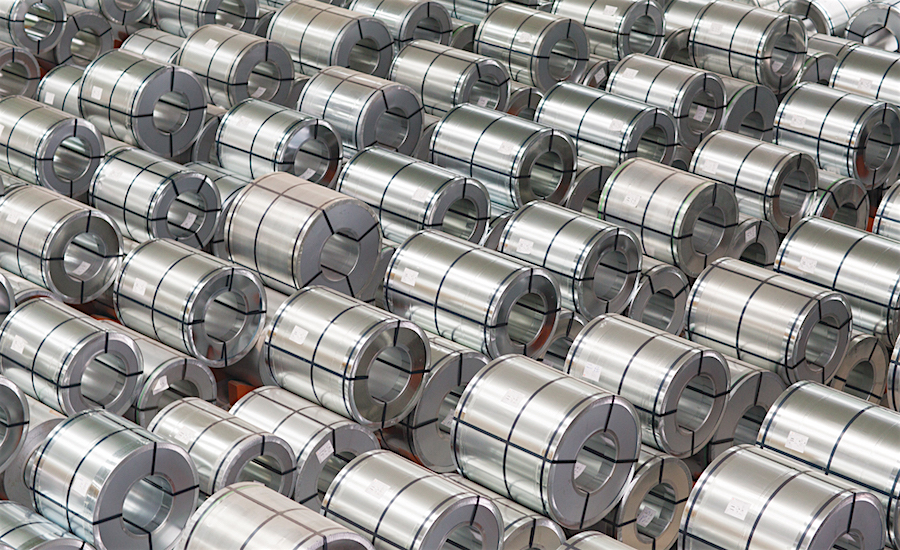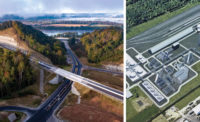South Africa’s Competition Commission approved on August 22 a $110-million payment proposal by Africa’s largest steelmaker, ArcelorMittal South Africa Ltd. (AMSA), for its involvement in price fixing and market allocation for construction materials.
The settlement, said to be the largest for a single entity in South Africa, will now settle pending investigations and prosecution against the company—one of many cartel participants that fixed prices for hundreds of public-and-private construction projects in the country.
AMSA faced several allegations since 1999 of cartel-like behavior involving long-steel products, flat steel and scrap metal jointly with Cape Town Iron and Steel Works, Highveld Steel & Vanadium Corporation Ltd., Cape Gate and the South African Iron and Steel Institute.
According to the Competition Commission, it launched its investigation into AMSA’s business practices in 2008, after one of the company’s competitors, Scaw South Africa, formerly a subsidiary of Anglo American, applied for forbearance in terms of the Commission's corporate leniency policy. It agreed to provide the Commission with information on AMSA’s anti-competitive practices.
The Commission said these companies, which are competitors in the manufacture of long steel products, “engaged in collusion by fixing prices and discounts, allocating customers and sharing commercially sensitive information such as sales volumes through the South African Iron and Steel Institute and the South Africa Reinforced Concrete Engineers’ Association.”
The settlement covers all price fixing and cartel behavior cases under investigation by the Commission of South Africa, although some of the accusations “have been subsequently referred to the Competition Tribunal,” said Themba Sepotokele, ArcelorMittal South Africa’s spokesperson.
“This will bring an end to these legal matters, which have been pending against company for some time,” said Sepotokele.
The company, based in Vanderbijlpark, will pay an administrative penalty of $106 million in installments of $21 million effective from 2017. It is the largest penalty imposed by the South Africa Competition Commission on a single firm after the $35.5 million on trawling and fish processing firm Pioneer Food in November 2010 and $14.2 million on wireline and wireless telecommunications provider Telkom SA SOC Ltd. in June 2013.
“This shows a trend that the Commission is serious on cracking down cartels,” said Lydia Molefe, Competition Commission spokesperson.
ArcelorMittal, which supplies 61% of all steel used in South Africa’s construction industry—despite stiff competition from cheap Chinese products—admitted two of the allegations relating to long steel “price fixing, allocating customers and sharing commercially sensitive information.”
The company, which has not posted annual net profit since 2010, also admitted price fixing for scrap metal but denied accusations of excessive pricing—an allegation for which Sepotokele said the Commission has no evidence yet.
However, Sepotokele said the company, which has an estimated production capacity of 7 million tonnes of liquid steel per year, “has agreed to a pricing remedy for local flat-steel products and shall for a period of five years not be permitted to earn an EBIT [earnings before interest and tax] margin percentage greater than 10% relating to the products sold in South Africa over a 12 month-period.”
The company, which plans to invest $327 million in South Africa’s steel industry in the next five years, will under specified circumstances by the Commission increase the margin to a maximum of 15% over a 12-month period of the company’s financial year.
In January 2014, six years into the investigation, South Africa’s Dept. of Economic Development had warned in a report “the increasing prices of construction services and materials were increasing the costs of government’s infrastructure projects.”
It said cartels—such as those dealing in precast concrete products, specifically pipes and culverts—had been in operation for nearly 30 years by the time they were discovered in 2007, a year before the probe on ArcelorMittal commenced. Other countries, such as the U.S., have also investigated similar allegations.
The department said that by 2010 investigations by the Competition Commission had exposed cartel practices in more than 300 construction projects across all levels of government in South Africa.
“Most of the implicated firms had determined and maintained collusive and price fixing agreements and determined market allocation for high value public and private construction projects,” the report said.



Post a comment to this article
Report Abusive Comment